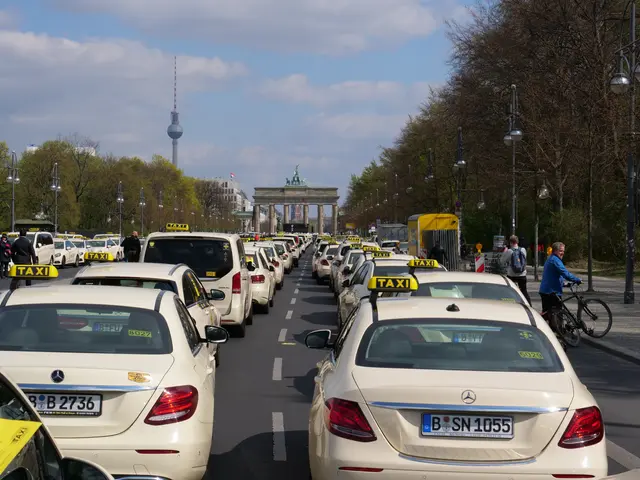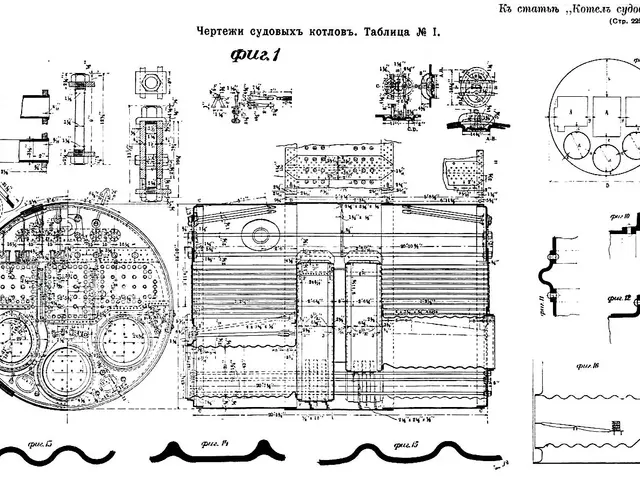Trump Clears Way for Nippon Steel Investment in US Despite Controversy
United States President Trump gives green light to $14.9 billion Steel-Nippon merger, a move that stirs debate
In a surprising turn of events, President Donald Trump recently granted approval for Japanese conglomerate Nippon to invest in US Steel, a move that has sparked controversy and raised eyebrows. While the specifics of the deal remain undisclosed, Nippon has been directed to abide by a 'national security agreement.' A joint statement from Nippon and US Steel outlines a planned investment of nearly $11 billion by 2028.
The approval comes with a special set of conditions, known as a 'golden share,' which gives the Trump administration veto power over the combined entity. Under the National Security Agreement (NSA) approved by Trump's executive order, this golden share includes commitments on governance, domestic steel production, and trade [1]. Essentially, it provides the government with a degree of oversight and control over strategic company decisions, particularly those affecting national security, supply chain resilience, and employment in the steel industry.
A Long-standing Controversy
Nippon first announced its bid in December 2023, but faced opposition from both former President Joe Biden and Donald Trump. The political heavyweights rallied for US-ownership of US Steel. Biden, before exiting, blocked the deal on national security concerns in January 2025, leading to lawsuits from Nippon attributing bias. However, the Trump administration, after welcoming an investment from Nippon shortly after coming to office, was in favor of this deal for the second time [1].
The recent executive order indicates that Trump wants significant control over the company as a prerequisite for approval. The specifics of how a "golden share" would function are still unclear, but it might be the differentiating feature between Biden's disapproval in his term and the narrative Trump has presented.
Impact on US Steel Share Price
The Nippon bid for a $14.9 billion investment set off a steep increase in US Steel share price, rising 3.5%. However, following Trump's executive order, the United States Steel Corp closed at a 2.9% decline, marking a bearish low for both the firm and its employees [2].
US-Iran Conflict and Oil Prices
The global economic tensions continue to escalate with the ongoing Israel-Iran conflict, causing oil prices to soar [3]. Despite these challenges, Trump's approval of the Nippon Steel investment in US Steel could potentially signal strategic compromise, securing investment while maintaining control over national assets.
[1] The golden share in the context of the Nippon Steel and U.S. Steel merger refers to a special set of rights granted to the U.S. government over the combined entity.
[2] Under Biden’s term, the initial approach was to block the deal outright, citing national security concerns. However, Trump’s approach is to allow the merger but impose conditions through the NSA and golden share provisions, ensuring federal oversight and guarantees regarding domestic investment, production, and job creation.
[3] Dow Jones slides amid the escalating Israel-Iran conflict, oil prices soar.
- The controversy surrounding Nippon Steel's investment in US Steel, initially opposed by both former President Joe Biden and President Donald Trump, has taken a new turn with Trump's recent executive order, which includes a 'golden share' provision that gives the administration veto power over the combined entity.
- The unexpected approval of Nippon Steel's investment by President Trump, under a national security agreement, could potentially impact the finance and investment market, as the union plans to invest nearly $11 billion in US Steel by 2028.
- As global economic tensions escalate, including the ongoing Israel-Iran conflict driving oil prices up, Trump's approval of Nippon Steel's investment in US Steel could offer a strategic compromise, securing investment while maintaining control over national assets and financial entities.








